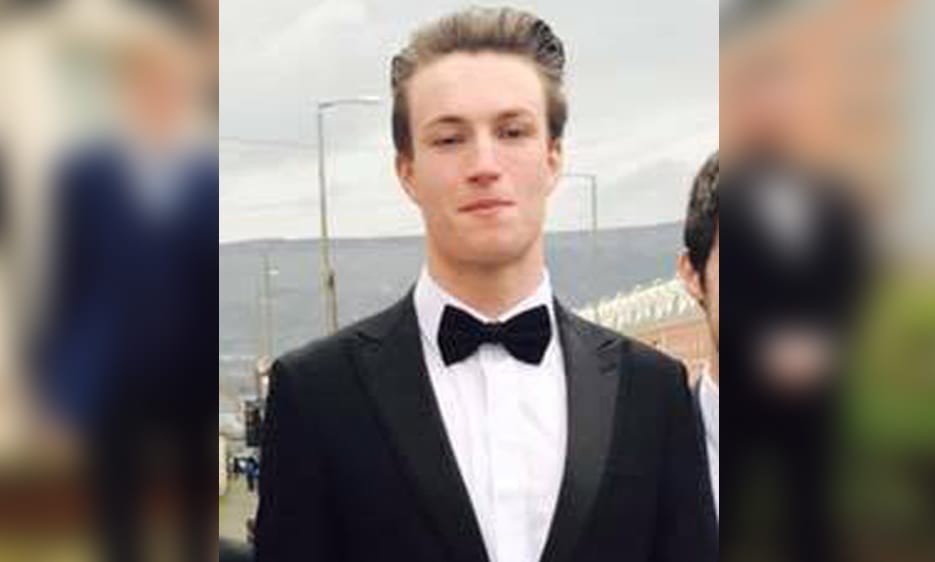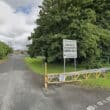
Three lifeguards at the Orchard Leisure Centre in Armagh have been accused of failing to do their jobs properly following the death of a swimmer almost eight years ago.
Twenty-year-old Christopher Rogers, from Armagh, died on the evening of April 7, 2017 having suffered an hypoxic blackout in the leisure centre’s main swimming pool.
Three lifeguards on duty that evening – William Holden, (26), of Unshinagh Lane, Portadown; James Monaghan, (25), of Folly Lane, Armagh; and Cathal Peter Forrest-McVeigh, (34), of Dunamony Road, Dungannon – all appeared at Newry Crown Court on the opening day of the case, each charged with a single count of being an employee in breach of their duties to others.
Prosecution KC, Liam McCollum, addressing the 12 members of the jury during his opening remarks, highlighted that there was CCTV footage of the incident in question, which was later played to the court.
Mr McCollum explained that Mr Rogers was a member of the Orchard Leisure Centre and that he was also a member of the local swimming club and “known to be a very able swimmer”.
“In interview,” he said, “two of the lifeguards stated that they knew Mr Rogers and were acquainted with the fact he was an excellent swimmer…that he would regularly swim lengths of the pool underwater, and also practiced holding his breath in a static position while submerged at the bottom of the pool.”
Detailing the CCTV footage, Mr McCollum stated that the deceased was swimming in the pool at approximately 9.20pm.
Mr Rogers began swimming from the deep end to the shallow end along the bottom of the pool. He then headed back the opposite direction and did another length before commencing a third length, all the while underwater.
At the midway point of the pool, on that third length, Mr Rogers’ head momentarily emerges from the water before he sinks to the bottom.
Mr McCollum stated that Mr Rogers stayed there for five minutes and 14 seconds before he was rescued.
“Unfortunately he died thereafter,” he said.
Mr Rogers suffered a loss of consciousness – an hypoxic blackout – as a result of holding his breath associated with underwater swimming.
The times, Mr McCollum contended, “are extremely important”, stating that six minutes and 11 seconds had elapsed since Mr Rogers began swimming lengths underwater, and five minutes and 14 seconds went by after he had last surfaced above the water.
The three lifeguards – the defendants – were poolside. Holden was in the high chair. CCTV footage, according to the prosecution, shows Monaghan and McVeigh engaged in conversation, which “lasted a minimum of two minutes and 20 seconds”, at the corner of the deep end of the pool.
Mr McCollum continued: “During the course of that conversation, Mr Rogers had broken the surface and submerged to the bottom of the pool, having suffered the hypoxic blackout.
“Mr Monaghan, having finished the conversation with Mr McVeigh, walks away and then turns and walks back to Mr McVeigh, who has also moved a short distance away to retrieve a metal pole.
“A very short time later, having retrieved the pole, Mr McVeigh strikes it off the metal steps,” Mr McCollum says, to illicit a response from Mr Rogers, who is underwater.
Mr Monaghan is standing just behind Mr McVeigh as the steps are struck and there appears to be no response from Mr Rogers.
“About 40 seconds later, Mr Monaghan leaves the company of Mr McVeigh at the pool edge and heads back towards the changing rooms and out of sight. Twenty seconds later, it seems Mr McVeigh indicates with his arm to a member of the public, who is swimming a length of pool, approaching the area where Mr Rogers is.
“[The witness] abandons his length of the pool and turns the side, ducking under the lane divider to enter the adjacent lane where Mr Rogers is. [The witness] resurfaces and returns to his side of the lane divider having indicated Mr Rogers had “gave him a thumbs up”.
“About a minute later, Mr Monaghan returns from the changing area and walks past Mr McVeigh on his way down to the shallow end. He remains there for a short while before turning back towards Mr McVeigh.
“Mr McVeigh remains stationary in the position he had been, and then he points with his hand, and immediately, Mr Holden goes to retrieve a radio.
“A few seconds later, Mr Monaghan has passed Mr McVeigh and he exits the pool area. A few seconds after that Mr McVeigh points to the area where Mr Rogers is. Two members of the public stop their lengths.
“One again raises the lane divider, and drops under it. He then goes under the water, and raises Mr Rogers to the surface. At that stage Mr McVeigh then enters the water to initiate a rescue.”
At this point the jury is shown the CCTV footage.
Mr McCollum, in concluding his opening remarks, outlines the job expectations of the lifeguards, stating that their primary duty is to “guard lives” and be vigilant for the safety of swimmers.
He argues that the defendants “did not perform their job properly because a very long period of time passed between Mr Rogers sinking to the bottom of the pool and a rescue attempt”.
All three defendants deny the charge against them.
The trial, which is expected to take last just under two weeks, continues.






